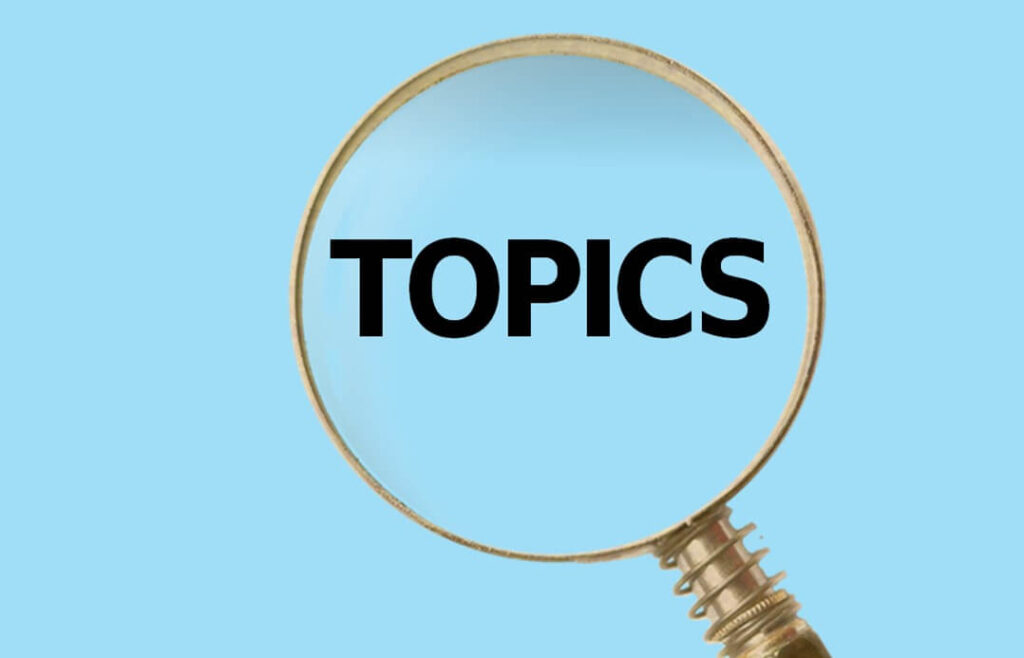
Junior Division (Grades 7–9)
(Minimum 3 minutes, Maximum 4 minutes)
TOPIC 1
His All-Holiness Ecumenical Patriarch Bartholomew has earned the title of the Green Patriarch, and was named one of Time Magazine’s 100 Most Influential People in the World, for His teachings about humanity’s spiritual responsibility for taking care of God’s creation — planet earth. His All-Holiness stands on the shoulders of Saints, who taught that the world is a gift from God, and that taking care of His creation is a way to connect with God. Explore and discuss the teachings of His All-Holiness and the Saints on the creation of the world. What are some of our practical responsibilities as stewards of our planet, and how does that enrich our lives as Christians?
TOPIC 2
Many of us have heroes to whom we look up. It may be an older brother or sister, an athlete, or a musician. We have heroes in our religious life, as well as people who inspire us to practice our faith. They teach us, usually by example, how we ought to live as Orthodox Christians. Select a Saint or person who has been the most influential in your spiritual life. Describe the particular and practical ways that influence has taken place.
TOPIC 3
On the Day of Theophany (January 6), we chant, “All those who were baptized in Christ have put on Christ” (Gal. 3:27). Discuss the meaning of this hymn and the obligations it places upon us as Orthodox Christians.
TOPIC 4
When reading the Parable of the Prodigal Son (Luke 15: 11-32), we learn about the various stages of repentance. What are they? How do they relate to the reversal of the son’s journey away from the father? What does the father’s reaction upon seeing his son teach us about our relationship to our Father in Heaven?
TOPIC 5
The Orthodox Church has a rich heritage of sacred hymns that “contribute radiant and poetic splendor to Orthodox worship,” thus, opening the way to God. Select your favorite Church hymn and talk about how it strengthens your faith.
Senior Division (Grades 10–12)
(Minimum 4 minutes, Maximum 5 minutes)
TOPIC 1
Slandered without cause, convicted without a trial, exiled unjustly — this was the life endured by one of the greatest saints of our times — Saint Nektarios of Aegina. Forgiving others who hurt us that deeply and unjustly seems almost impossible. What can we learn from Saint Nektarios, whose life was about forgiving what some might call the impossible?
TOPIC 2
Apostle Paul refers to Adam as the first man, and Christ as the Second Adam. The Fathers of the Church, especially Saint Irenaeus of Lyon, refer to Christ and Panagia as the Second Adam and the Second Eve. Why is the Most Holy Theotokos called the “Second Eve”? And why is Christ called the “Second Adam?” How do Christ and Panagia fulfill and go beyond their prototypes?
TOPIC 3
Christ says, “This is my body which is given for you. Do this in remembrance of me” (Luke 22:1). He also says, “Unless you eat the flesh of the Son of Man and drink His blood, you have no life in you” (John 6:53). Explore the Orthodox teaching on the Eucharist by reading the prayers of the Divine Liturgy the writings of one or more Church Fathers.
TOPIC 4
The number of natural disasters worldwide continues to increase, resulting in more communities destroyed and more lives lost. How would you respond to someone who questions why God allows natural disasters to happen when we know God can intervene at any moment? If God is all-knowing, all-powerful, and all-loving, how can He allow evil things to happen?
TOPIC 5
During the Divine Liturgy, before the Consecration of the Holy Gifts, we hear the priest say the following: “Your own of Your own we offer to You, in all and for all.” What does this petition mean to you as an Orthodox Christian? Why is it important for us to focus on giving back out of the gifts we have been given by God?
